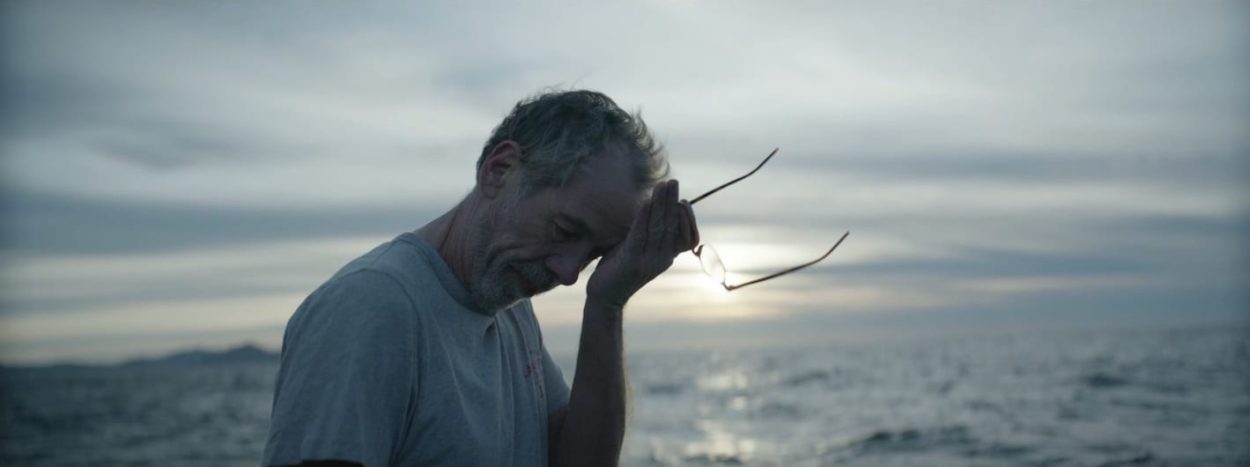How did your film come about? Were you given an open brief from Three Mobile’s agency Boy & Girls in Ireland?
Rory and the team at Boys & Girls approached with an idea about a whale that sang at the wrong frequency – a true story. The script was perfect and tight, who in their right mind would not be intrigued? My interest was in what kind of man would pursue this whale across oceans and years.
Did you already know Torben Zeller?
I didn’t know Torben Zeller at the time. He seemed to fit the kind of atmosphere we were looking for. We found him in Denmark actually. He brought a lot – ideas and feeling and the right level of obsession.
How did your vision of the film evolve? Were you always clear about the way you wanted to portray the story or did you experiment with different ideas and ways of telling it?
Shooting on the water is always an interesting challenge and to some degree it is not the place to go looking for an evolving story. By that I mean you want to know pretty exactly what you are looking for, rather than hoping for it to turn up. That water is quite cold and doesn’t allow for too much monkeying about.
The experimentation and exploration came largely inside the area of character – digging deep into that heart. Maybe we found a little unexpected absurdity in there. A man who can channel the sound of the whale came out of the process rather than being scripted for example.
It was the second time also I’d worked with Steve (Annis) who always brings visual magic and brings very valuable – actually maybe priceless – creative tension. There were one or two major calls from Steve – against the flow – that made the film.
Your filmic language plays a strong element in the emotional engagement of the narrative – I’m thinking of your almost abstract footage of the landscape which is paced beautifully for instance. Did the editing of the film fall into place quite naturally?
The choice of edit, pace and rhythm was particular here. There was a dream-element to this, a kind of magic realism that I like. Editorially I wanted something uncomfortable for me and with Paul (Hardcastle at Trim Editing) I had no track record, no pre-existing relationship or shorthand. A sort of deliberately engineered lack of relaxation. Paul brought an appreciation of the kind of subliminal connection between some of these quite strikingly different images. He created some very striking and challenging transitions. I like to shoot, on a story like this, with a series of composed and quite engineered moments punctuating freer more spontaneous camera movement.
How much of the film was scripted?
Overall more is boarded than maybe is immediately apparent.
When were you most happiest in the production?
I was happiest on the shoot bodysurfing a very small but hollow wave north of Alesund. I had never worn a dry suit – that is a strange feeling because of the buoyancy.
Were there any major challenges and how did you resolve them?
The creative production on the job was whirring very beautifully. The water and the weather and the changing conditions are a challenge in that part of the world. My friends – producer Fran Thompson and 1st Joe Carter particularly, as well as Tor and all at Loop Film – delicately sidestepped huge storms and high seas to help me get what I needed. By that I mean, they made simple but sizeable calls which directly and immediately made the storytelling better and stronger (and possible).
Anything else you’d like to share?
Boys and Girls work in a way that is not entirely all that common. Bairbre and Sam and Rory know what they want and they don’t mess about. But they let an idea evolve also – this is fun and challenging. I think it’s what Three Mobile probably have come to expect of them. As with my time at 4Creative, the writing continues into production.











